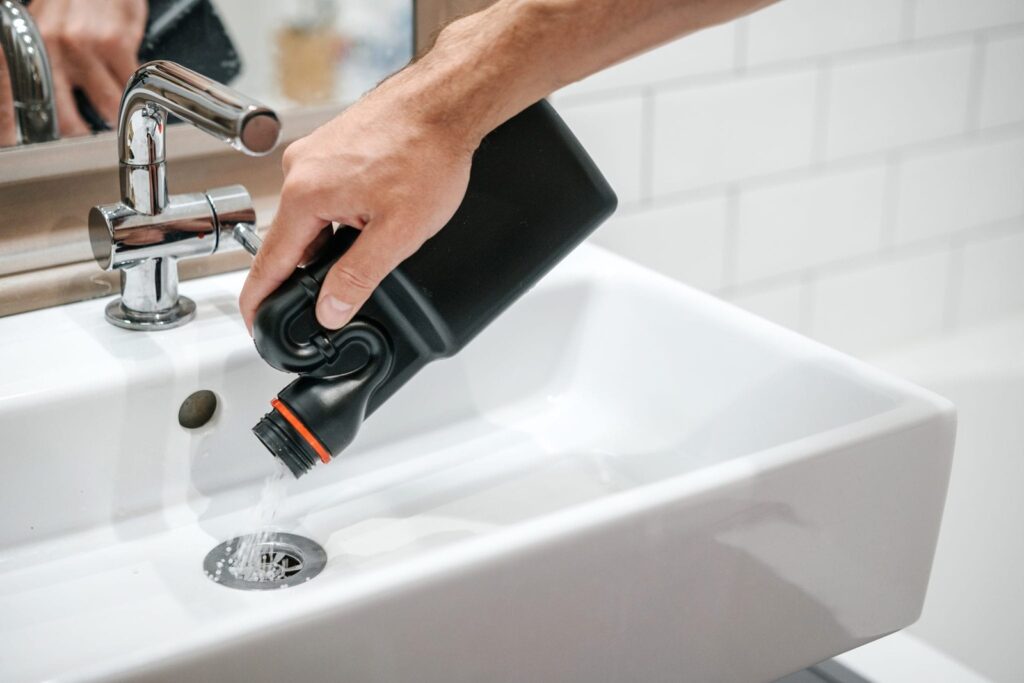
Drain clogs are a frustrating household problem that most homeowners have faced at least once. When confronted with a slow or blocked drain, many people reach for a bottle of chemical drain cleaner, hoping for a quick and easy solution. But do these products actually work as promised? Let’s dive deep into the world of drain cleaners and uncover their true effectiveness.
How Drain Cleaners Work
Chemical drain cleaners typically rely on one of three main mechanisms:
- Caustic Drain Cleaners: These contain lye or potassium hydroxide that create a chemical reaction to break down organic materials like hair and food waste. They work by generating heat and converting grease into a soap-like substance that can be more easily washed away.
- Oxidizing Drain Cleaners: Containing substances like bleach, nitrates, and peroxides, these cleaners work by causing oxidation—essentially breaking down organic blockages through a chemical reaction that releases electrons.
- Acid Drain Cleaners: Primarily used by professional plumbers, these are the most powerful and contain sulfuric or hydrochloric acid. They’re extremely effective but also the most dangerous and typically not recommended for home use.
Effectiveness: The Pros and Cons
Advantages
- Quick Acting: Many drain cleaners can clear minor clogs within 15-30 minutes
- Convenient: Easy to purchase and use without professional help
- Relatively Inexpensive: Cheaper than calling a plumber for minor blockages
Significant Drawbacks
- Limited Effectiveness: They often provide only temporary solutions
- Potential Pipe Damage: Repeated use can corrode pipes, especially in older homes
- Environmental Concerns: Many chemical drain cleaners contain harsh substances harmful to ecosystems
- Incomplete Blockage Removal: They might create a small passage through a clog without fully removing the underlying issue
When Drain Cleaners Work Best
Drain cleaners are most effective for:
- Light, organic blockages
- Minor hair clogs in shower or sink drains
- Occasional, small accumulations of grease and soap scum
When Drain Cleaners Fail
You should avoid chemical drain cleaners and call a professional when:
- You have a complete drain blockage
- There’s standing water in the sink or tub
- You have older plumbing systems
- The clog is caused by hard objects or significant buildup
- You’ve already tried multiple applications without success
Safer Alternatives
- Plunger: Often more effective and completely chemical-free
- Drain Snake/Auger: Mechanically removes blockages without chemical damage
- Enzymatic Cleaners: Biological solutions that break down organic matter more safely
- Boiling Water and Vinegar: A natural method for minor grease and soap buildup
Professional Recommendations
Most plumbing professionals advise:
- Using drain cleaners sparingly
- Focusing on prevention through regular drain maintenance
- Investing in mechanical clearing methods
- Scheduling periodic professional drain cleaning
The Bottom Line
While chemical drain cleaners can work for minor, superficial clogs, they are not a long-term solution. They provide a temporary fix that might mask underlying plumbing issues and can potentially cause more harm than good.
For persistent or recurring drain problems, it’s always best to consult a professional plumber who can diagnose and address the root cause of your drainage issues.
Pro Tip: The best drain maintenance is prevention. Use drain screens, avoid pouring grease down drains, and perform regular gentle cleaning to keep your pipes clear and functional.